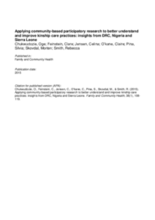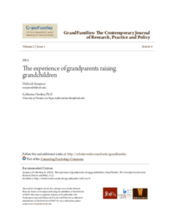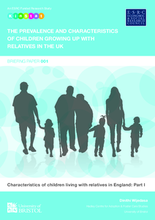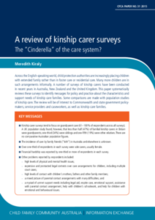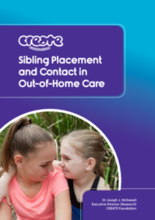Displaying 401 - 410 of 608
This paper reflects on the experiences of Save the Children in implementing a multi-country community-based participatory research (CBPR) program to increase understanding of kinship care in DRC, Nigeria and Sierra Leone.
The purpose of this qualitative study was to understand the experiences of grandparents in the US and the challenges they face raising their grandchildren.
This briefing paper is the first in a series, from an Economic and Social Research Council (ESRC) funded research study. The study explores the prevalence and characteristics of children growing up in kinship care in the UK using 2011 Census microdata.
This article describes a kinship navigator program for children and kin caregivers involved in Child Protective Services in-home treatment cases.
This issue of GrandFamilies: The Contemporary Journal of Research, Practice and Policy includes several articles related to kinship care in the United States.
This paper calls for creative pathways of engagement that delineate places of belonging for and with Indigenous youth in care.
This paper systematically reviews surveys of kinship carers in Australia, New Zealand and the United Kingdom to identify messages for policy and practice about the characteristics and support needs of kinship care families.
This practice brief provides an overview of critical self-reflection questions that can be used, in a variety of ways, for training purposes for professionals in the US who work with grandparents raising grandchildren.
To gain insight into how practitioners can best meet the needs of grandfamilies, 40 custodial grandmothers and their adolescent grandchildren were interviewed in this study.
This research report analyzes the contributing factors in children and youth’s ability to be placed in care alongside siblings, as well as how caseworkers view sibling placements in Australia’s child welfare system.

